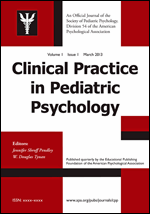 After a group of researchers noticed an error that affected the analysis of a survey of psychologists working with medical teams to help pediatric patients, they didn’t just issue a retraction — they published a commentary explaining what exactly went wrong.
After a group of researchers noticed an error that affected the analysis of a survey of psychologists working with medical teams to help pediatric patients, they didn’t just issue a retraction — they published a commentary explaining what exactly went wrong.
The error was discovered by a research assistant who was assembling a scientific poster, and noticed the data didn’t align with what was reported in the journal. The error, the authors note, was:
an honest one, a mistake of not reverse coding a portion of the data that none of the authors caught over several months of editing and conference calls. Unfortunately, this error led to misrepresentation and misinterpretation of a subset of the data, impacting the results and discussion.
Needless to say, these authors — who use their “lessons learned” to help other researchers avoid similar missteps — earn a spot in our “doing the right thing” category. The retraction and commentary both appear in Clinical Practice in Pediatric Psychology.
Their first piece of advice in “Retraction experience, lessons learned, and recommendations for clinician researchers” — assume errors will happen, and not vice versa: Continue reading What to do when you make a mistake? Advice from authors who’ve been there